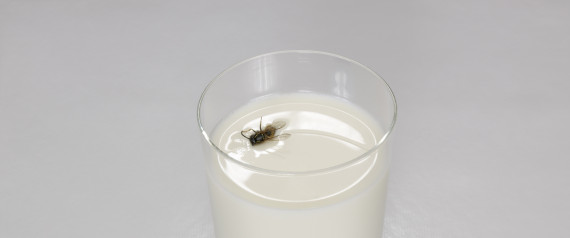If A Fly Landed On Your Food, Would You Still Eat It?
According to a new survey from Orkin, nearly two-thirds of people would still dig in if a fly landed on their meal, while only 3 percent of people would still eat their food if a roach crawled over it. The survey, which was conducted by Russell Research for Orkin, included 1,015 people.
Sure, these results probably aren't that surprising. But what is concerning is that flies do carry disease, yet people report still being willing to eat the food.
“Many restaurant patrons may not be aware that house flies are twice as filthy as cockroaches,” Ron Harrison, Ph.D., an entomologist and technical services director at Orkin, said in a statement announcing the survey results. “It's important that everyone understands the magnitude of the health threats flies pose so that they can help prevent the transmission of dangerous diseases and bacteria.”
In fact, the World Health Organization has an entire report on houseflies (or Musca domestica) and how they can spread disease and infection. The common housefly, in particular, eats food and waste, where it can pick up a disease agent and then spread it to other places.
“Flies can spread diseases because they feed freely on human food and filthy matter alike,” according to the WHO report. “The fly picks up disease-causing organisms while crawling and feeding. Those that stick to the outside surfaces of the fly may survive for only a few hours, but those that are ingested with the food may survive in the fly's crop or gut for several days.”
The WHO reports that flies can spread a whole range of diseases, including eye infections, skin infections and enteric infections (such as diarrhea). Orkin also points out that house flies can also “transmit the eggs of parasite worms” (yuck).

No comments:
Post a Comment